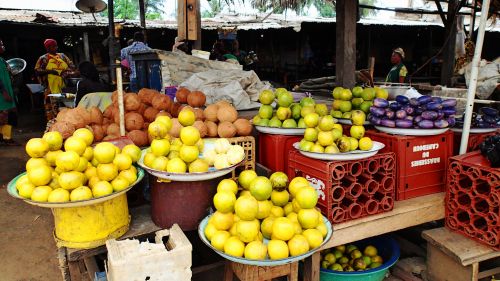Food Security, Political Instability, and America on the Hook: the Case of Cameroon

The Council's US Navy Federal Executive Fellow, Commander Michele Lowe, explains how food insecurity fears in Cameroon can fuel instability in our latest collaboration with Agri-Pulse.
For the last 100 years, food has been used as both a weapon of war and in some cases the driving force behind it. Hunger, in particular, has been at the heart of many of the revolutions of the past. Just over a decade ago the Arab Spring was launched because of the rising price of food. It is therefore understood by many that food, and fear of hunger, can overthrow regimes, shift political power, and even change the course of a nation. But how does food insecurity and the potential unrest it drives impact America? The west African nation of Cameroon is a perfect example of how food insecurity can undermine a stable regime and change the balance of power in an entire region critical to US foreign policy objectives.
Led by 87-year-old President Biya since 1981, Cameroon is seen in Africa as a stalwart of stability in an unstable neighborhood. But all is not rosy in Cameroon today. As has happened across the world, rising food costs and resulting food scarcity often drive human conflict. In fact, conflict in Cameroon threatens the entire sub-region because of food insecurity. With an ongoing insurgency in the Anglophone regions, Boko Haram and ISIS-West Africa in the Far North, and non-state rebel intrusions from Central African Republic, Cameroon faces significant deficits in its ability to protect and feed its population. As the largest donor across all sectors in the sub-region – health, military assistance, and food – the United States logically would be expected to lead any response efforts to an unfolding breakdown of the humanitarian situation. It is important that Americans understand how interconnected stability in Cameroon is to the sub-region and ultimately to U.S. taxpayers.
Surrounded by conflict-laden countries, Cameroon hosts over 430,000 refugees. The bulk of assistance is from the United States through the United Nations World Food Program, which provides millions of U.S. dollars of shelter and food to these refugees. In addition, Cameroon is a key trading hub to exporters around the globe. Cameroon plays a role as the regional “food highway”. Many of Cameroon’s neighbors are dependent on its open borders, open ports, and open roads for their trade. Its landlocked neighbors receive much needed food and fuel imports through Cameroon’s main port, Douala.

